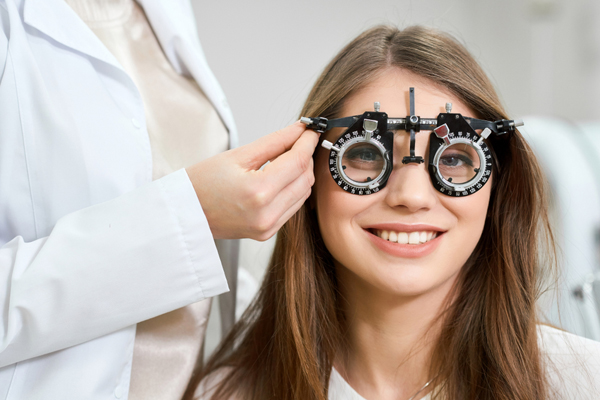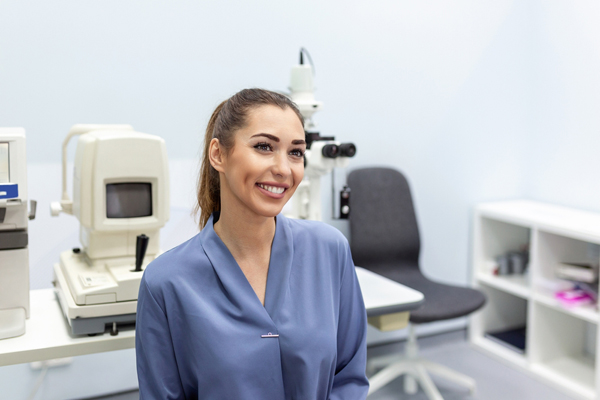Common Emergency Eye Care Services

Emergency eye care is needed if you find yourself dealing with a problem with your eye that causes pain or affects your vision. Failing to treat eye injuries as soon as they are detected can lead to permanent consequences, like reduced vision or blindness. Common eye injuries that require emergency eye care include:
- Exposure to toxic chemicals
- Getting hit in the neck, head, or face
- Pieces of materials like glass, wood, or metal getting stuck in the eye
Getting the emergency eye care services that you need
Symptoms that let patients know that it is time to see an eye care professional include:
- Blood coming out of an eyeball or its eyelid
- Intense, sudden pain coming from an eye
- Loss of vision
- An object stuck in the eye
Treatments that an optometrist might use to address eye care emergencies include the following.
1. Foreign body extraction
Foreign bodies like dirt, sand, or an eyelash can sometimes get stuck in the eye, leading to pain, irritation, and inflammation. In some cases, the foreign body might pierce the eyeball and cause severe damage. An eyeball being damaged by a foreign object can lead to surrounding blood vessels becoming dilated, and it increases the risk of the eye getting infected. Anyone who finds themselves trying to remove a foreign object stuck in their eye for more than a few hours should immediately seek emergency eye care. An optometrist might be able to remove it by numbing the patient’s eye with an anesthetic eye drop, then rinsing off the foreign object or picking it out of the eye with a tool.
2. Eye infection treatment
Pink eye is one of the most common eye infections that optometrists deal with. A viral infection often causes it, and it is typically accompanied by a yellow discharge coming out of the eye. An optometrist can treat the infection by prescribing antibiotics.
Failing to get appropriate treatment for pink eye can lead to a more severe condition, known as corneal infiltrates. This leaves spots on the patient’s eye that limit their vision, and it requires urgent treatment to prevent it from causing vision loss.
Pink eye shares similar symptoms with other serious eye conditions, like ocular herpes, which can lead to blindness when left untreated. Therefore, people with pink eye-like symptoms should always get a proper diagnosis to ensure that they are not dealing with something more serious.
3. Emergency vision testing
Some people find themselves dealing with a sudden reduction in the quality of their vision that might result from a corneal or retinal problem. Such defects can lead to blindness if left untreated.
For example, a person with a detached retina might notice spots or flashing lights in their vision. An optometrist can perform appropriate tests that pinpoint the cause of the patient’s reduced vision before it causes permanent damage.
Frequently asked questions about emergency eye care services
Here are the answers to some questions you might have regarding eye care services provided by an optometrist:
1. What are emergency eye care services?
Emergency eye care services refer to the treatment and management of ocular conditions that require immediate attention. These consist of but are not limited to foreign body removal, chemical splash injuries, and severe pain or vision loss.
2. What types of conditions require emergency eye care?
Some of the circumstances that may require emergency eye care include but are not limited to severe pain or vision loss or getting something out of the eye. Seek medical care right away If you notice any of these symptoms.
3. How do I know if I need emergency eye care?
Some of the symptoms that may indicate a need for emergency eye care include but are not limited to severe pain, vision loss, redness, swelling, and discharge. Seek emergency eye care services if you notice any of these symptoms.
4. What should I expect during an emergency eye care visit?
During an emergency eye care visit, the doctor will assess your symptoms and determine the best course of treatment. This may include looking into your eyes or dilating your pupils.
5. What are the risks associated with emergency eye care?
The risks associated with emergency eye care vary depending on the condition being treated. Some of the potential risks include but are not limited to infection, further damage to the eye, and vision loss. It is essential to consider these risks with your doctor before treatment.
Get the emergency eye care services you need
Call or visit our Mt Vernon clinic for emergency eye care if you notice a sudden change in your vision or pain coming from one of your eyes.
Request an appointment here: https://brighteyesmv.com or call Bright Eyes Optometry at (914) 668-1429 for an appointment in our Mt Vernon office.
Check out what others are saying about our services on Yelp: Read our Yelp reviews.
Recent Posts
Looking for more information on eye protection? An ophthalmologist knows everything there is to know about protecting the eyes. While there are a few different types of eye care professionals, ophthalmologists are eye care professionals who have undergone additional years of education and training so they can offer their patients both medical and surgical eye…
Controlling myopia at an early age can slow down its progression. This can help prevent yearly upgrades for stronger glasses. Your optometrist can help by offering various treatments. If you want to find out how your optometrist can help control myopia, here are the details.Optometrists use atropine eye drops to achieve short-term myopia control results.…
Another word for an itchy eye is ocular pruritis. It is a common health situation in many people. Itchiness in your eyes is more than enough reason to see an optometrist. Receiving prompt treatment is important in receiving prompt relief. If you want to know what causes an itchy eye and the treatments for it,…
An ophthalmologist is a medical or osteopathic doctor who specializes in eye and vision care and is licensed to practice medicine and surgery. Eye care is an important part of one's overall health care. Read on to learn more about choosing the right eye-care professional for you.During a checkup, the eye doctor will first take…



